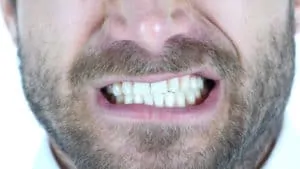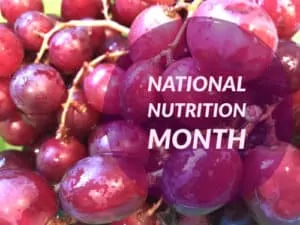Archives

What Exactly is Bruxism Anyway?
Bruxism is defined as the involuntary habitual grinding of your teeth, mainly while you’re asleep. That’s what makes teeth grinding so dangerous for you and your smile. Many of the 30 million people who struggle with bruxism don’t even know they’re doing it, so they don’t know what signs and symptoms they should be looking for. That’s why it’s important to have a partner like your dentist in Sparks who can see the early warning signs and help you fight your bruxism before it badly damages your teeth.
What Causes Bruxism or Teeth Grinding?
The American Dental Association says there are three big reasons why patients of all ages grind or clench their teeth while sleeping. While we break them down here, ask yourself if any of these could be affecting you oral and overall health.
- Anxiety or Stress – This is a big one that so many people can relate to, especially when life is busy and demanding. Worrying or feeling stressed can cause us to tense up making it all the more likely you’ll start to clench your jaw or grind your teeth. It’s important to address your stress before it ruins your smile and your sleep.
- Having a Bad Bite – Sometimes when your teeth are out of alignment, it can cause problems with your temporomandibular joint (TMJ) and the surrounding facial muscles. Your muscle can start to spasm during sleep causing you to grind your teeth together in response.
- Medical Complications – Some patients who grind their teeth at night could have an underlying, undiagnosed medical condition such as Parkinson’s or Huntington’s disease or even acid reflux. Bruxism is also a side effect of certain prescription medications.
Stop ignoring your pain or masking it with medications. It’s time to call our Sparks dental office as soon as possible before your teeth become damaged or broken. We can give you a comprehensive, thorough exam, learn more about the symptoms you’ve been experiencing, and monitor your bite. From there, we’ll be able to address the severity of your teeth grinding and put together a personalized treatment plan for you.

Can Eating Healthy Help My Smile?
The resounding answer to this question is Y-E-S! It starts with adding foods that are rich in these vitamins and minerals to your diet:
- Calcium
- Phosphorus
- Vitamin C
- Vitamin A
The biggest benefit to eating healthy foods is that you’re going to have an added defense and protection to your tooth enamel. While this is the hardest substance in our bodies, even stronger than bone, it can be highly and irreversibly damaged by acids and bacteria. This is a problem because, no matter how advanced dentistry has become, there’s nothing that can replace the natural durability of your tooth enamel.
What Foods Does My Dentist in Sparks Recommend?
We agree with the American Dental Association when it recommends adding certain foods and beverages to your diet that contain beneficial tooth nutrients. Note that they’re not high in sugar or overly processed. Some of the recommended foods include:
- Milk
- Plain yogurt
- Cheese
- Tofu
- Leafy greens
- Almonds
- Apples
- Carrots
- Celery
Is Sugar Really That Bad for Me and My Smile?
Unfortunately, sugar isn’t good for your mouth or your body. Especially candies, chocolates, sodas, and sports drinks. It’s important to limit or even eliminate these things from your diet wherever you can. They’re going to do more harm to your teeth than good, so it’s best to keep them to a minimum for you and your family’s oral health to function properly.
Remember, sugars lurk in mysterious places like carbohydrate-loaded foods. They break down into simple sugars in your body, and this is just as dangerous as eating sweets and drinking sugary beverages. Try being more mindful of what the labels say when you’re shopping at the store for you and your family.
If you have questions about making your diet more healthy or how to take care of your smile, please never hesitate to reach out to our Sparks dental practice. We’re happy to take your call, answer your questions, and even schedule you for a visit to talk.
